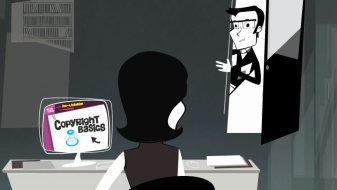
Definition: The exclusive legal right, given to an originator or an assignee to print, publish, perform, film, or record literary, artistic, or musical material, and to authorize others to do the same.
Yes. The U.S. Copyright Law is a federal Law in the US Code Title 17.
It is also a right guaranteed to U.S. citizens by the constitution in Article 1, Section 8, providing protection for the individual while enabling their work to benefit the nation.
“The congress shall have Power to ….. promote the progress of science and useful arts, by securing for limited times to authors and inventors the exclusive Right to their respective writings and discoveries.”


US Copyright law gives the creator of a work the exclusive right to:
All the material you create, including for course work, is copyright protected. Before anyone can copy, distribute, display, make a derivative work, or perform your work publicly, they must seek your permission.
You must consider copyright law when putting information on a public website. This includes course materials provided by your professors, and any of your academic projects that use information, music, or images borrowed from another source. In those cases, you may need to secure permission from the copyright holder or see if the intended use qualifies for an exception such as “Fair Use.”
library@up.edu | 503.943.7111 or 800.841.8261 | 5000 N. Willamette Blvd., Portland, OR 97203-5798
Copyright © University of Portland, All Rights Reserved | Icons made by Freepik from www.flaticon.com